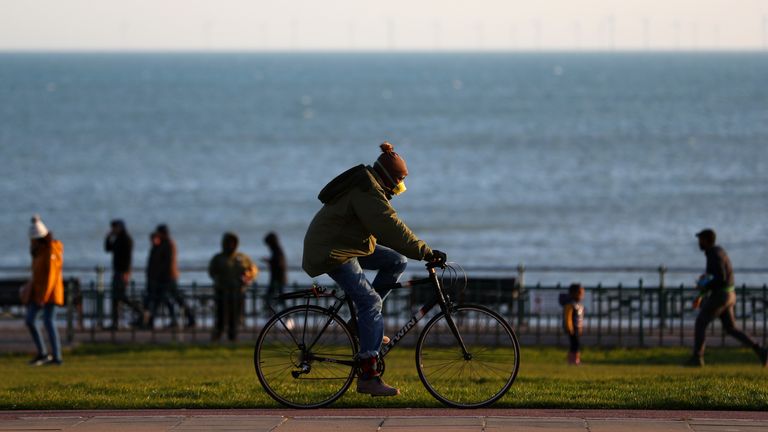Coronavirus: Emergency laws as UK heads towards lockdown
Boris Johnson is attempting to race sweeping new laws on coronavirus through the Commons in a day, as the UK faces the prospect of a total lockdown in the next 24 or 48 hours.
MPs are returning to the Commons after the weekend to debate the government’s Coronavirus Bill in all its stages, before it goes to the House of Lords and becomes law by the end of this week.
The Commons debate follows a stark warning from the prime minister that the UK is heading towards a lockdown, after appeals to the public to stay indoors were largely ignored during a sunny Mother’s Day.
At his latest Downing Street news conference, Mr Johnson said further measures would be considered in the next 24 hours or few days to prevent the spread of coronavirus if people fail to stay two metres apart.
He admitted being outdoors was “crucial for health, physical and mental well-being”, but warned people not to think that “fresh air in itself automatically provides some immunity”.
Ahead of the Commons debate, the government has also responded to a backlash against wealthy families fleeing towns and cities for holiday homes by attempting to stop them from travelling to them.
Updating guidance on non-essential travel, the government has now declared: “Essential travel does not include visits to second homes, camp sites, caravan parks or similar, whether for isolation purposes or holidays.
“People should remain in their primary residence. Not taking these steps puts additional pressure on communities and services that are already at risk.”
In other moves in the government’s war against the virus, 1.5 million letters are being sent to elderly and vulnerable people ordering them to stay at home as part of a so-called “shielding” process.
And as the UK lurches towards a lockdown, more high street stores are not opening, fast food chain McDonald’s is shutting its restaurants at 7pm and many local authorities are closing parks and open spaces.
The Coronavirus Bill, which runs to more than 320 pages, contains:
- Police powers to detain suspected carriers for quarantine and screening
- Restrictions on travel
- Streamlining NHS procedures, including allowing death certificates by funeral directors
- Closing ports and airports if there is a shortage of Border Force staff.
The bill proposes that police, public health and immigration officers will be able to detain people suspected of having COVID-19 and exact fines of up to £1,000 for refusing to submit to a test.
Other powers in the bill include registering retired doctors or medical students, school closures, video links in courts, banning public events, school closures and new rules for supermarkets on food supplies.
Source: Read Full Article



